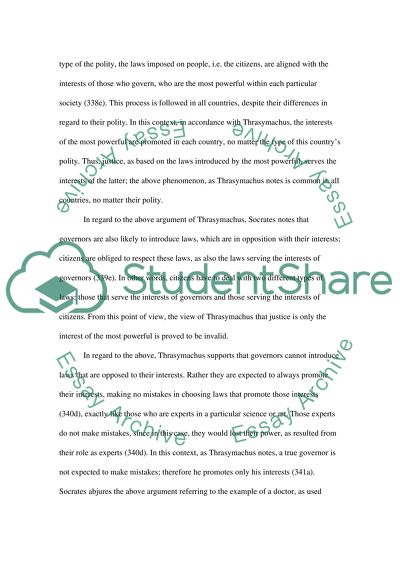Cite this document
(“Philosophy Essay on Justice Example | Topics and Well Written Essays - 1250 words”, n.d.)
Philosophy Essay on Justice Example | Topics and Well Written Essays - 1250 words. Retrieved from https://studentshare.org/philosophy/1443543-in-book-i-of-plato-s-republic-thrasymachus
Philosophy Essay on Justice Example | Topics and Well Written Essays - 1250 words. Retrieved from https://studentshare.org/philosophy/1443543-in-book-i-of-plato-s-republic-thrasymachus
(Philosophy Essay on Justice Example | Topics and Well Written Essays - 1250 Words)
Philosophy Essay on Justice Example | Topics and Well Written Essays - 1250 Words. https://studentshare.org/philosophy/1443543-in-book-i-of-plato-s-republic-thrasymachus.
Philosophy Essay on Justice Example | Topics and Well Written Essays - 1250 Words. https://studentshare.org/philosophy/1443543-in-book-i-of-plato-s-republic-thrasymachus.
“Philosophy Essay on Justice Example | Topics and Well Written Essays - 1250 Words”, n.d. https://studentshare.org/philosophy/1443543-in-book-i-of-plato-s-republic-thrasymachus.


